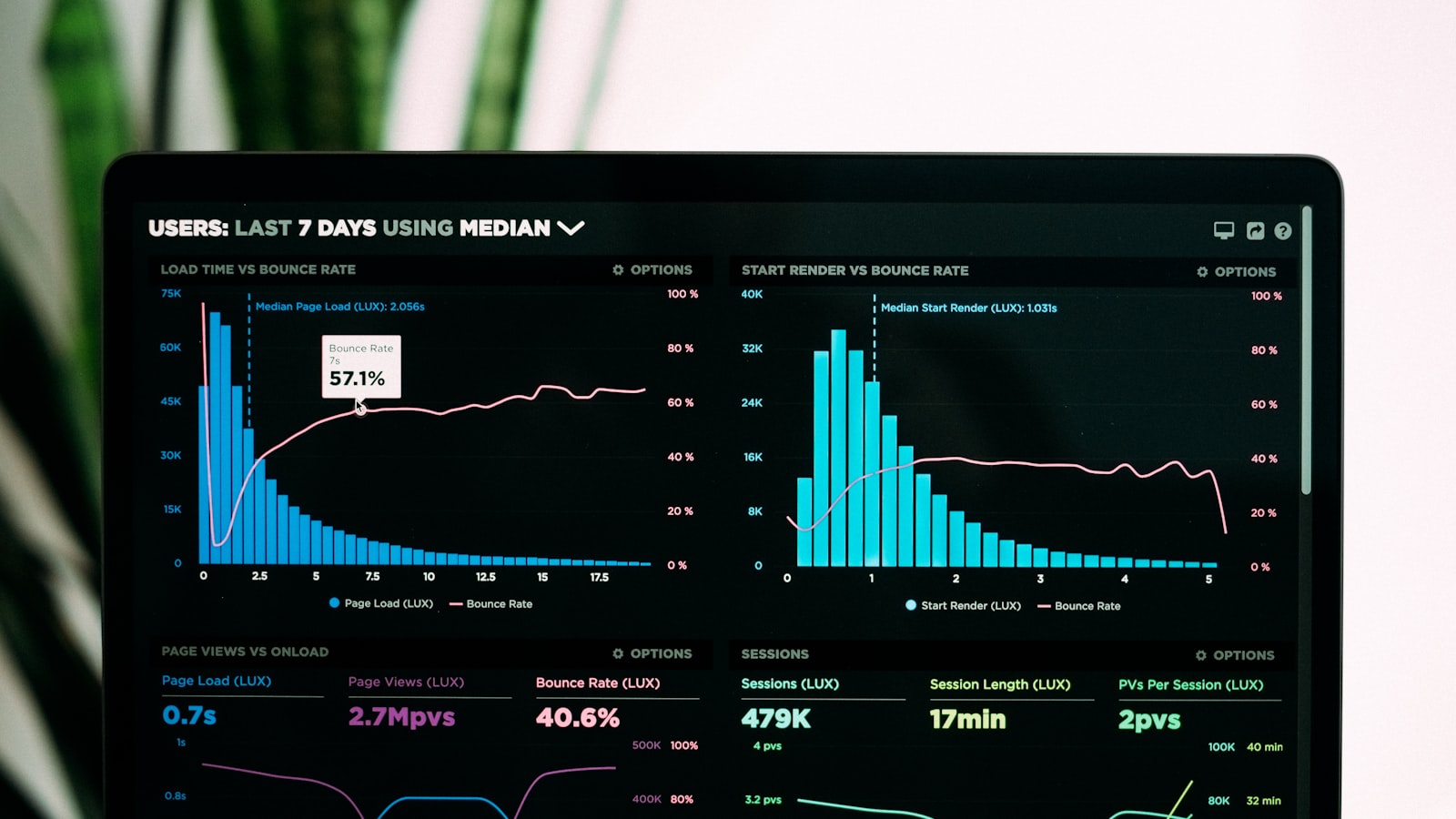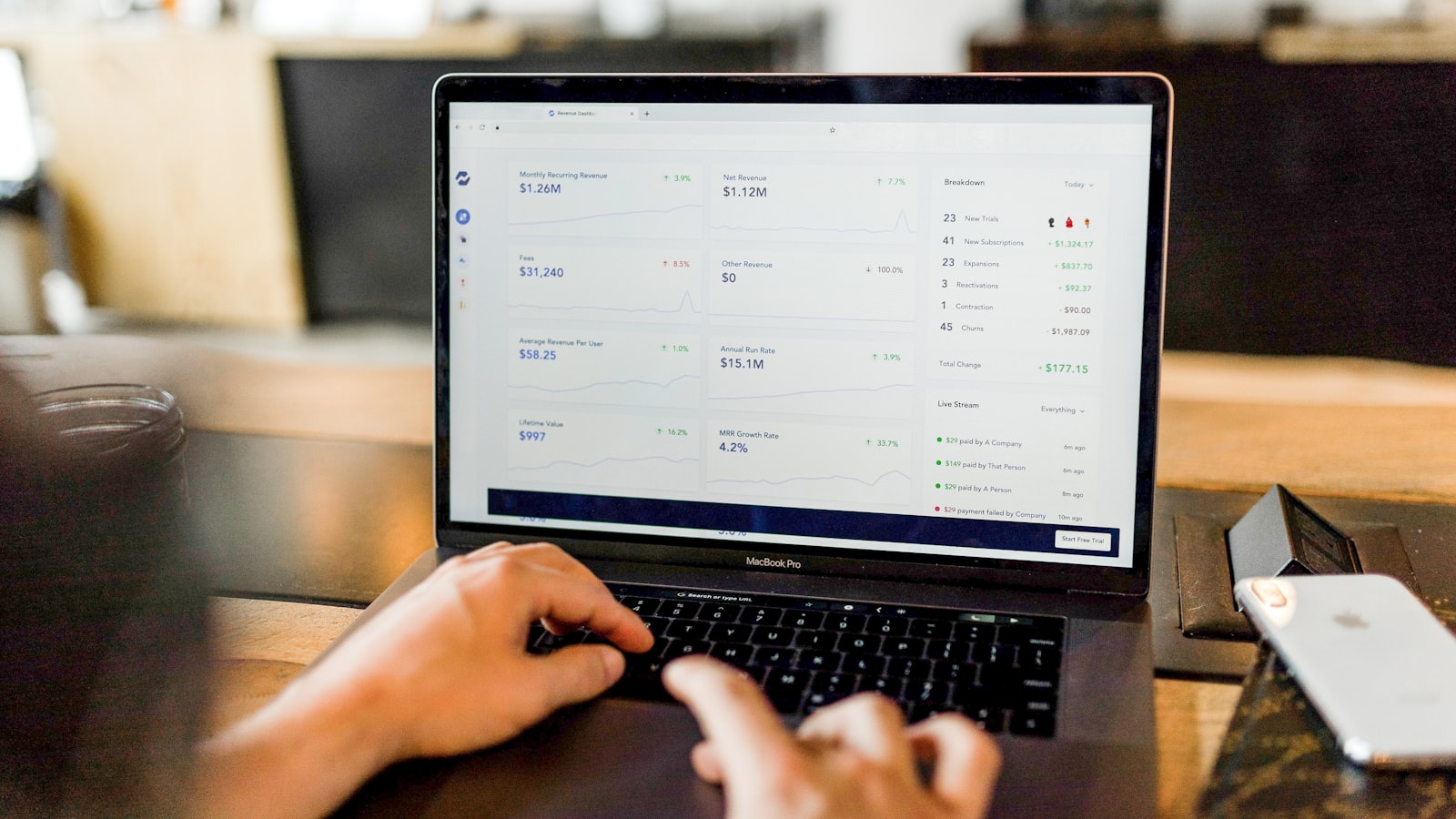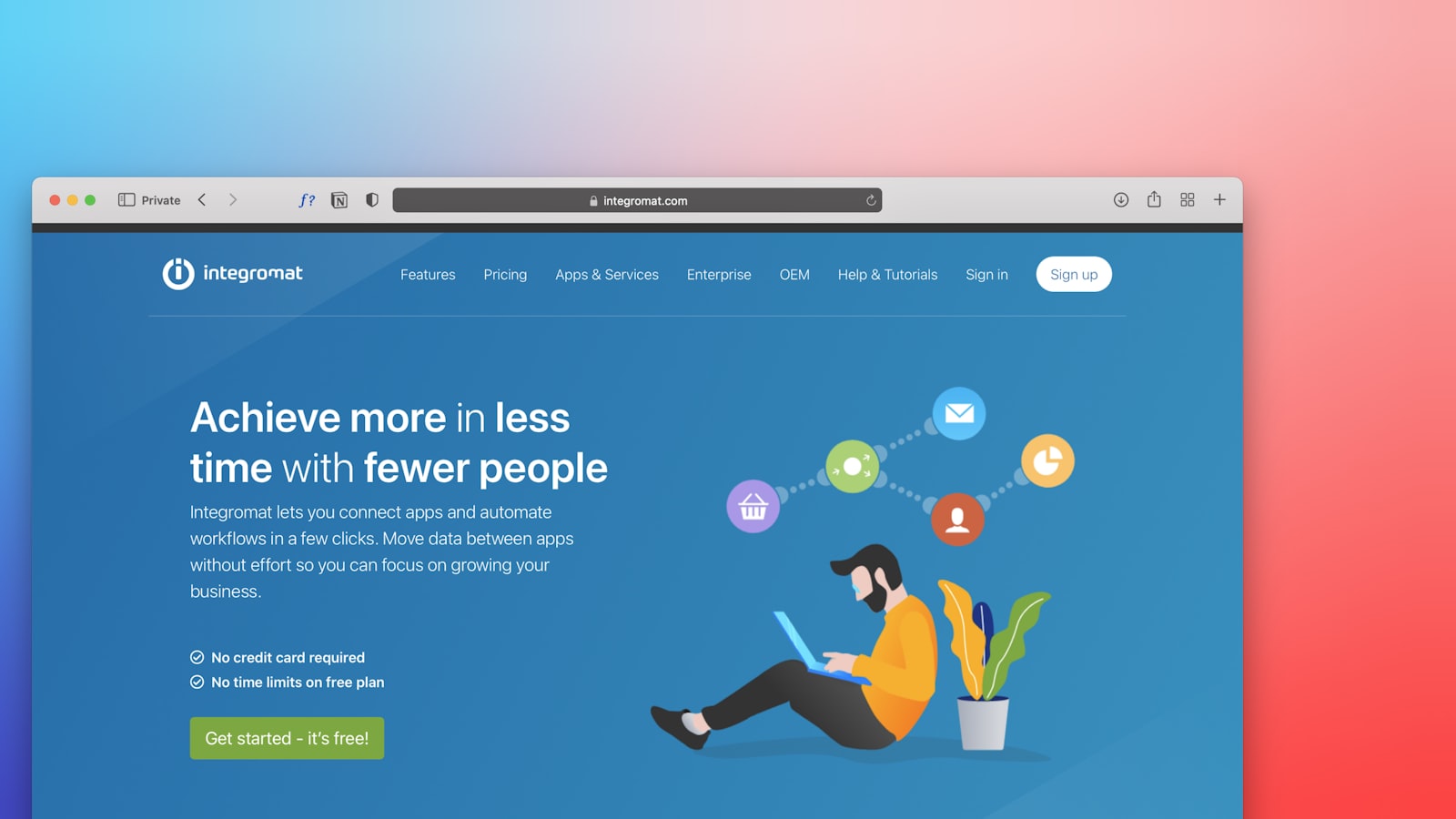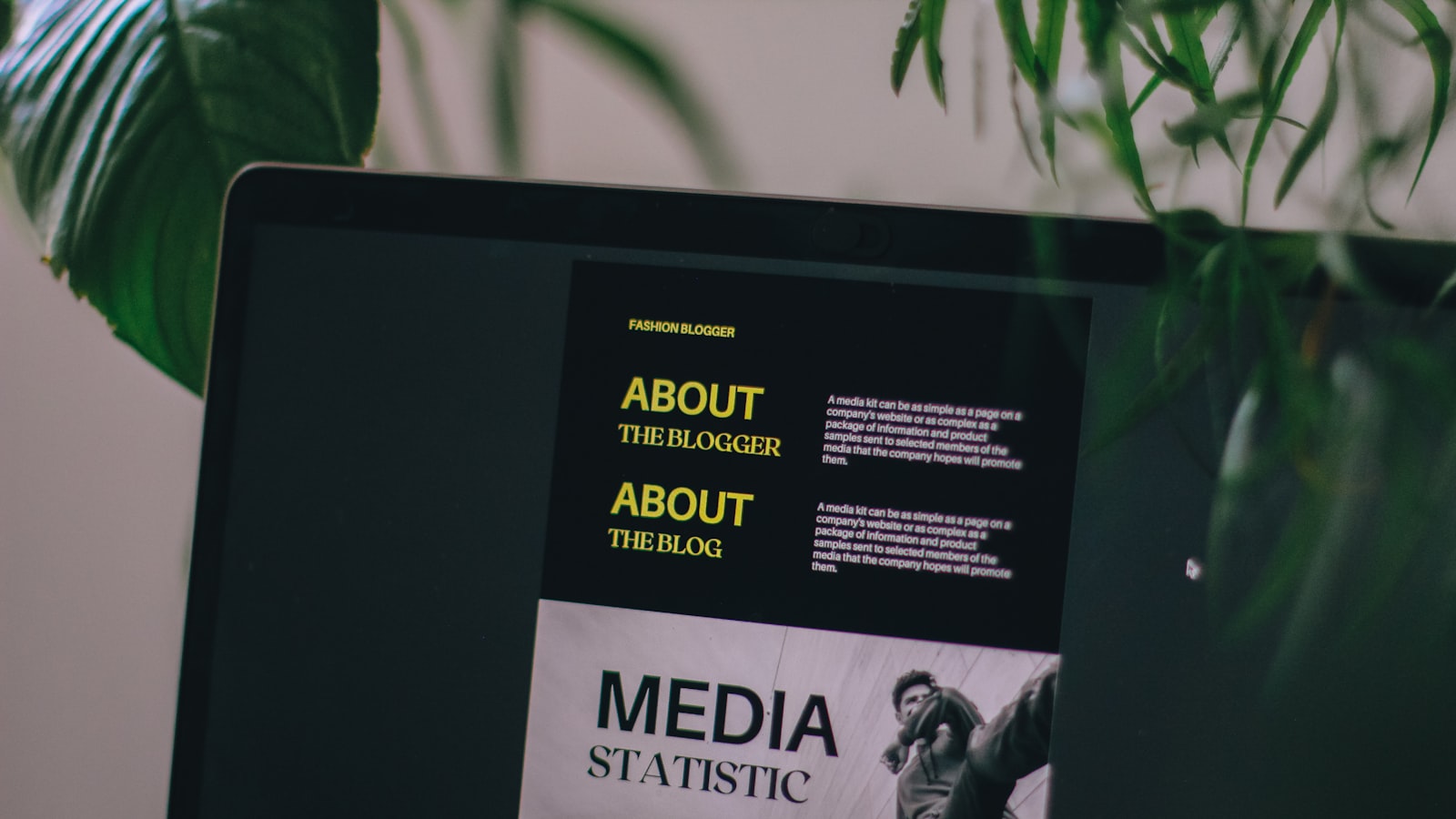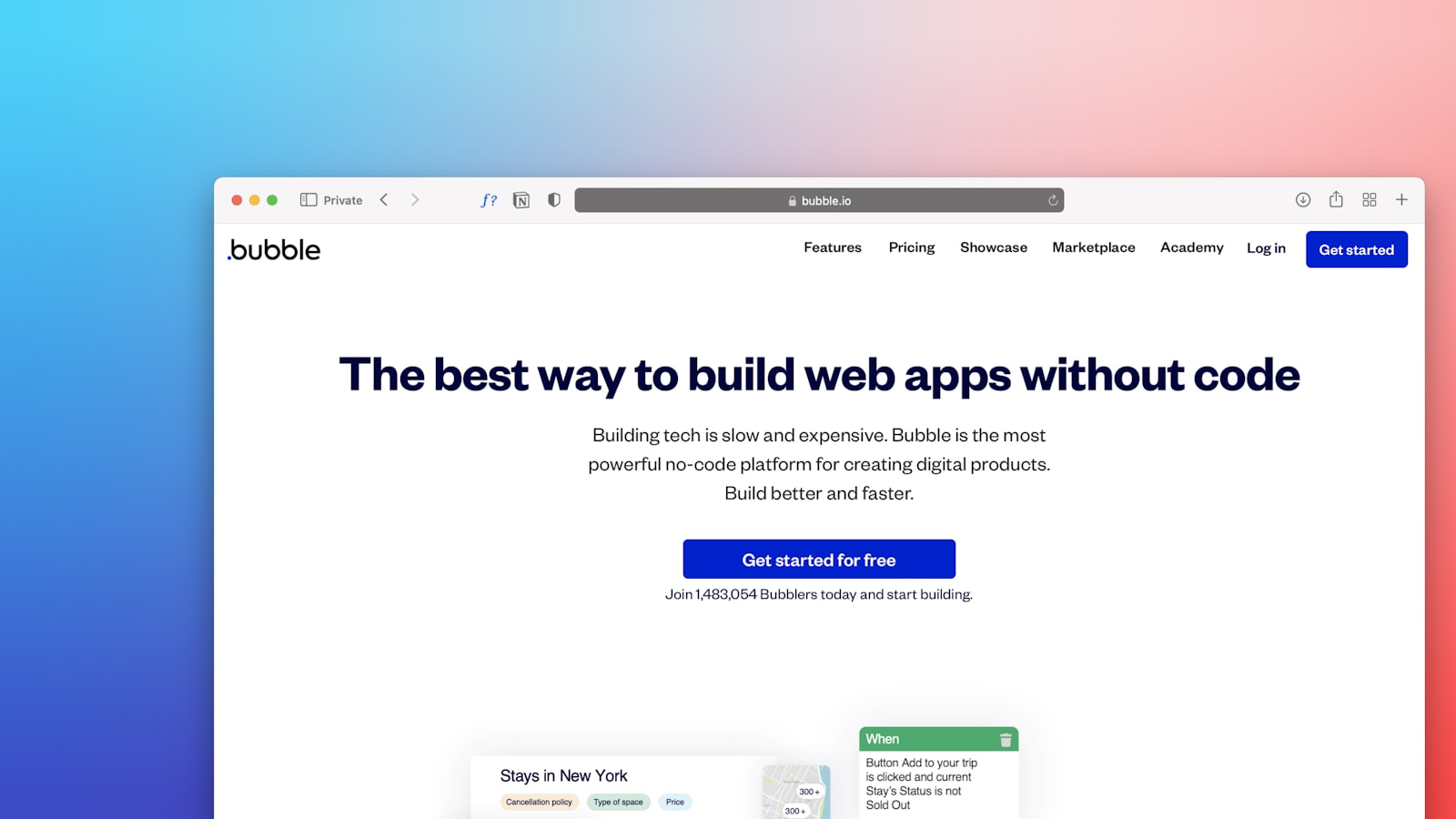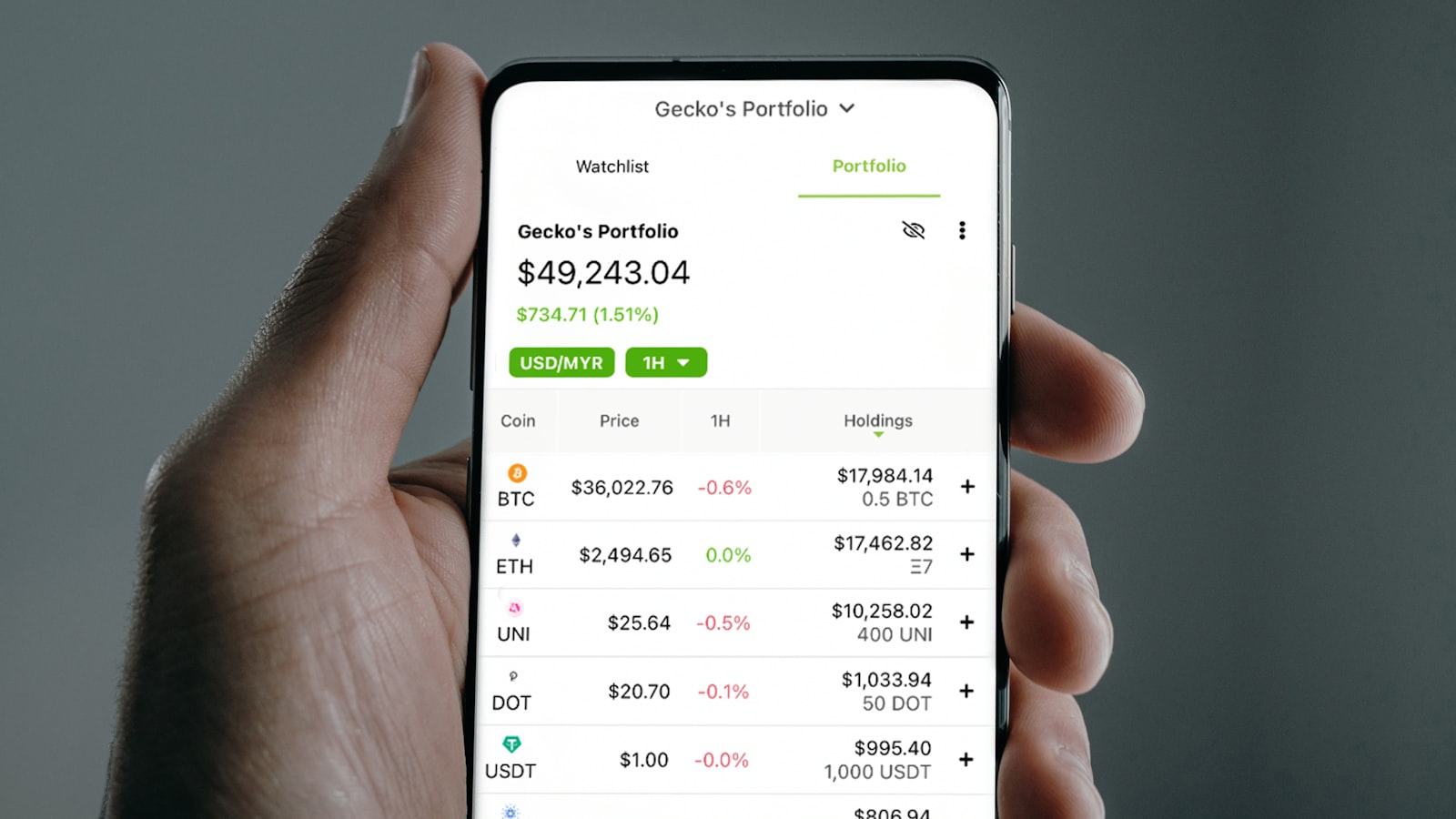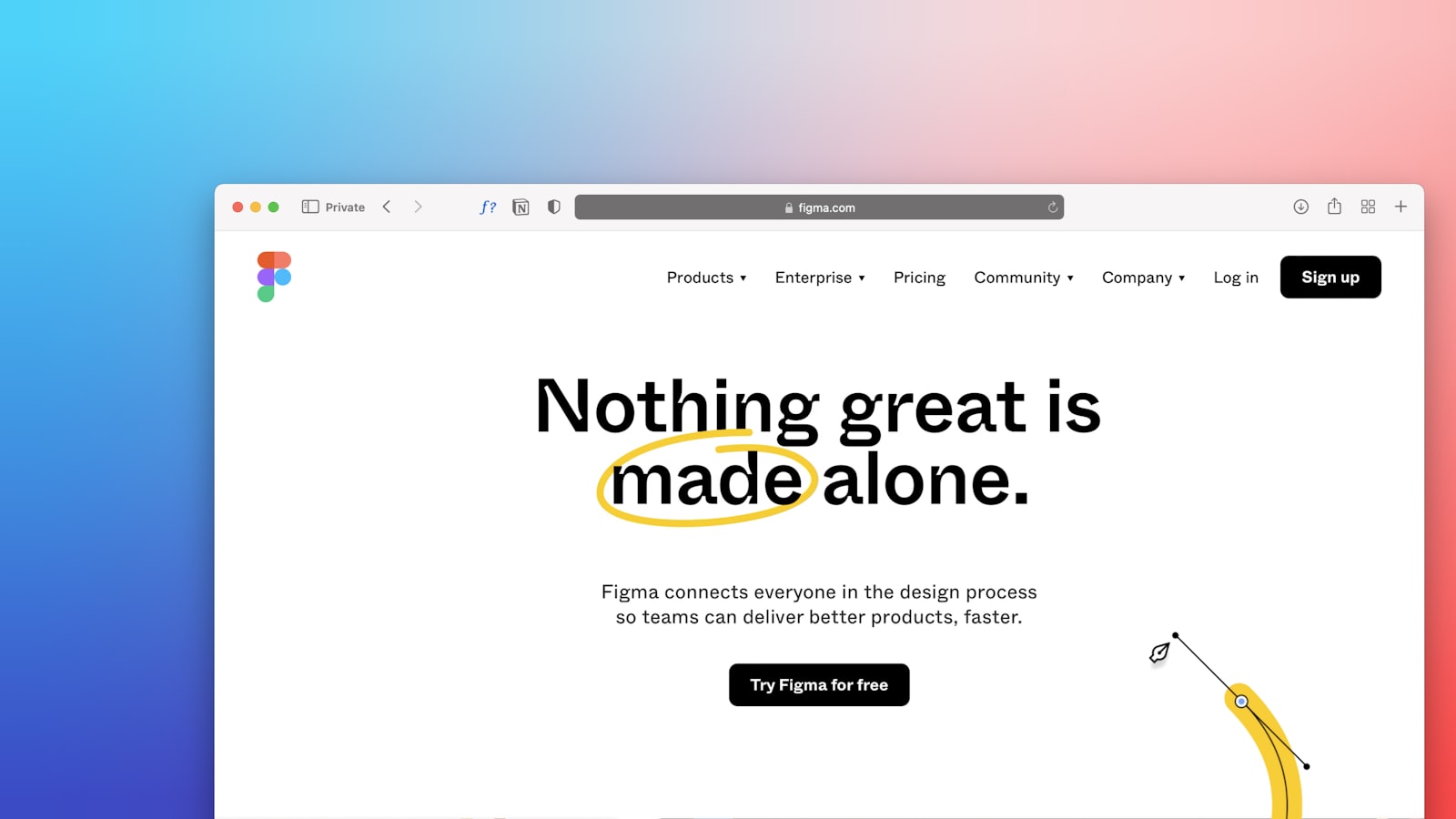How to Ethically Spy on Your PPC Competitors and Improve Your Campaigns
How to Ethically Spy on Your PPC Competitors and Improve Your Campaigns
How to Ethically Spy on Your PPC Competitors and Improve Your Campaigns
Discover ethical PPC spying techniques to analyze competitors and enhance your campaigns. Learn how to gain insights without crossing the line.
Discover ethical PPC spying techniques to analyze competitors and enhance your campaigns. Learn how to gain insights without crossing the line.



How to Ethically Spy on Your PPC Competitors and Improve Your Campaigns
Introduction to PPC Competitor Analysis
Ever wondered how your competitors always seem to be one step ahead in their PPC campaigns? It's no magic trick; it's all about strategic ppc spying. But don't worry, we're not talking about anything shady here. In this guide, we'll show you how to ethically and effectively analyze your competitors' PPC efforts to supercharge your own campaigns.
Why Competitor Analysis is Crucial for PPC Success
Let's face it, PPC advertising is a battlefield. To come out on top, you need to know what your competitors are up to. By conducting a thorough competitor analysis, you can:
Identify gaps in your own campaigns.
Discover new keyword opportunities.
Understand what ad copy resonates with your target audience.
Optimize your budget by focusing on high-performing strategies.
Ethical Considerations in Competitor Analysis
Before you grab your spy gear, let's talk ethics. Yes, you can gain valuable insights from your competitors, but it's crucial to do so ethically. Here are some ground rules:
No hacking: Always use legitimate tools and publicly available data.
Respect privacy: Avoid any tactics that infringe on privacy or proprietary information.
Transparency: Be honest about your methods if questioned.
Ready to uncover the secrets behind your competitors' PPC success? Stick with us as we dive into data-driven insights and actionable strategies that will help you optimize your campaigns like a pro.
Introduction
The Importance of Ethical Competitive Analysis in PPC
Ever wondered how your competitors are always one step ahead in the PPC game? Spoiler alert: it's not magic, it's strategy. Welcome to the world of ppc spying—where ethical sleuthing meets data-driven insights. In this guide, we'll show you how to ethically spy on your PPC competitors and use what you learn to boost your own campaigns. No trench coats or magnifying glasses required.
Benefits of Understanding Your Competitors' Strategies
Why should you care about what your competitors are doing? Simple: because it works. By understanding their strategies, you can:
Identify Gaps: Find the keywords and tactics your competitors are missing and swoop in to capture that market share.
Optimize Budgets: Allocate your ad spend more effectively by learning from their mistakes and successes.
Enhance Creativity: Get inspired by their ad copy and creatives to craft even more compelling campaigns.
Boost ROI: Implement proven strategies to improve your return on investment and outsmart the competition.
Ready to become the Sherlock Holmes of PPC? Stick around as we dive into ethical ways to gather and use competitive intelligence to supercharge your campaigns. Let's get started!
Understanding Competitive Intelligence
What is Competitive Intelligence?
Competitive intelligence, often referred to as CI, is the process of gathering and analyzing information about your competitors. This isn't about espionage or underhanded tactics but rather using publicly available data to make informed decisions. Think of it as doing your homework before a big test. By understanding what your competitors are up to, you can adjust your strategies to stay ahead.
Competitive intelligence involves:
Identifying key competitors
Analyzing their strengths and weaknesses
Understanding their market strategies
Monitoring their online presence and ad campaigns
For a deeper dive into competitive PPC tactics, check out our guide on competitive PPC tactics.
Strategic vs. Tactical Intelligence
When it comes to competitive intelligence, there are two main types: strategic and tactical. Understanding the difference between them is crucial for effective PPC spying.
Strategic Intelligence
Strategic intelligence focuses on the big picture. It involves long-term planning and understanding broader market trends. This type of intelligence helps you set overarching goals and strategies. For example, you might analyze a competitor's overall market position, their brand reputation, and their long-term business objectives.
Tactical Intelligence
Tactical intelligence, on the other hand, is all about the nitty-gritty details. It's more immediate and action-oriented. This involves monitoring competitors' daily ad spend, keyword choices, and specific campaign tactics. Tactical intelligence helps you make quick adjustments to your campaigns to stay competitive.
For more insights on SEM tactics, don't miss our article on competitive SEM tactics.

Understanding both strategic and tactical intelligence is key to a well-rounded competitive analysis. By combining these approaches, you can develop a robust strategy that keeps you ahead of the competition.
Understanding Competitive Intelligence
What is Competitive Intelligence?
Competitive intelligence (CI) involves gathering, analyzing, and using information about your competitors, customers, and market dynamics to gain an edge. It's like being Sherlock Holmes, but instead of solving crimes, you're solving business puzzles. CI helps you understand your competitive environment, spot opportunities, and dodge potential pitfalls.
Think of CI as your business's secret weapon. It goes beyond simple internet searches and includes data from news media, interviews, industry experts, trade shows, and public records. The goal? To make better-informed decisions and improve your business performance.
Strategic vs. Tactical Intelligence
CI comes in two flavors: strategic and tactical. Both are crucial, but they serve different purposes.
Strategic Intelligence: This is your long-term game plan. It deals with big-picture issues like identifying key risks and opportunities. It's like planning a chess match—thinking several moves ahead to ensure victory.
Tactical Intelligence: This is more about the here and now. It focuses on short-term goals like capturing market share or outmaneuvering a competitor's latest campaign. Think of it as your day-to-day battle strategy.
For a deeper dive into competitive tactics, check out our guide on 10 Competitive PPC Tactics to Stay Ahead of the Game.
Both types of intelligence are essential. Strategic intelligence helps you build a solid foundation for future growth, while tactical intelligence keeps you agile and responsive in the short term. Together, they form a comprehensive approach to understanding and outsmarting your competition.
Interested in more strategies? Our article on 10 Competitive SEM Tactics offers additional insights.

Ethical Methods to Spy on Your PPC Competitors
1. Conduct Market Research
Identifying Direct and Indirect Competitors
Before you can outsmart your competitors, you need to know who they are. Direct competitors are those offering the same products or services as you. Indirect competitors offer different products but target the same audience. Identifying both types helps you understand the market landscape better.
Tools for Market Research (e.g., SimilarWeb, SEMrush)
Tools like SimilarWeb and SEMrush can provide insights into your competitors' traffic sources, audience demographics, and top-performing pages. These tools help you gather data without crossing ethical boundaries.
2. Track Competitors' Keywords
Using Keyword Spy Tools (e.g., SpyFu, SEMrush)
Understanding which keywords your competitors are targeting can give you a significant edge. Tools like SpyFu and SEMrush allow you to see the keywords your competitors are bidding on and ranking for, both in PPC and organic search.
Analyzing Competitors' SEO and PPC Keywords
Once you've identified the keywords, analyze their performance. Look at metrics like search volume, cost-per-click (CPC), and competition level. This analysis helps you identify gaps in your strategy and discover new opportunities.
3. Monitor Competitors' Ad Campaigns
Tools for Ad Intelligence (e.g., PowerAdSpy, AdBeat)
To get a sense of your competitors' ad strategies, tools like PowerAdSpy and AdBeat are invaluable. They allow you to see the types of ads your competitors are running, their target audience, and even their estimated budget.
Analyzing Ad Types, Target Audience, and Budget
By analyzing the different ad types (text, display, video), you can understand what resonates with the audience. Look at the target demographics and estimated budget to gauge the scale and focus of your competitors' campaigns.
4. Follow Competitors on Social Media
Tools for Social Media Monitoring (e.g., PowerAdSpy)
Social media is a goldmine for competitive intelligence. Tools like PowerAdSpy can help you track your competitors' social media activities, including ad campaigns, posts, and engagement metrics.
Analyzing Content Strategy and Engagement
Observe the type of content your competitors post and how their audience engages with it. High engagement rates can indicate successful strategies that you might want to emulate (ethically, of course).
5. Monitor Brand Mentions and Online Reputation
Setting Up Alerts for Brand Mentions
Tools like Google Alerts can notify you whenever your competitors are mentioned online. This helps you stay updated on their reputation and customer feedback.
Analyzing Customer Engagement and Feedback
Pay attention to what customers are saying about your competitors. Positive reviews can highlight their strengths, while negative feedback can reveal weaknesses you can capitalize on.
6. Analyze Competitors' Website Engagement
Tools for Website Analysis (e.g., SimilarWeb, Alexa)
Understanding how users interact with your competitors' websites can provide valuable insights. Tools like SimilarWeb and Alexa offer data on website traffic, user behavior, and engagement metrics.
Understanding Website Traffic, Content, and User Experience
Analyze the traffic sources, popular content, and user experience of your competitors' websites. This information can help you improve your own site to attract and retain more visitors.

For more tips on staying ahead in the PPC game, check out our article on 10 Competitive PPC Tactics to Stay Ahead of the Game.
Advanced Techniques for Competitive Analysis
Building a Database of Competitors
Creating a comprehensive database of your competitors is the first step in advanced competitive analysis. This database should include details like their products, pricing, marketing strategies, and customer feedback. The more detailed your database, the better insights you can derive.
Organizing Data with Tools like Evernote
Evernote is a fantastic tool for organizing your competitive data. You can create notebooks for each competitor and store all the information you gather in one place. This makes it easy to access and update your data as needed.
Structuring Folders for Easy Access
To keep your data organized, structure your folders logically. For example, create separate folders for product information, marketing strategies, and customer feedback. This way, you can quickly find the information you need without sifting through piles of data.
Reverse Engineering Competitors' Strategies
Reverse engineering involves dissecting your competitors' strategies to understand what makes them successful. Look at their ad campaigns, landing pages, and customer journey. Tools like SpyFu and SEMrush can help you uncover these strategies.
Funnel Hacking and Landing Page Analysis
Funnel hacking is the process of analyzing and mimicking successful sales funnels used by your competitors. Examine their landing pages, call-to-actions, and follow-up emails. Tools like ClickFunnels can provide insights into how to optimize your own funnels.
Identifying High ROI Keywords and Ad Creatives
High ROI keywords and ad creatives are the backbone of any successful PPC campaign. Use tools like SpyFu and SEMrush to identify which keywords and ads are driving the most traffic and conversions for your competitors.
Understanding Competitors' Demographics
Understanding the demographics of your competitors' audience can provide valuable insights into your own target market. Tools like Alexa can help you gather demographic data such as age, gender, and interests.
Using Tools like Alexa for Demographic Insights
Alexa offers detailed demographic insights that can help you understand who your competitors are targeting. This information can guide your own marketing strategies and help you tailor your campaigns to better reach your audience.
Analyzing Psychographics and Buying Patterns
Psychographics and buying patterns provide a deeper understanding of your competitors' customers. Look at factors like lifestyle, values, and purchasing behavior. This can help you create more personalized and effective marketing campaigns.

Ethical Considerations and Best Practices
Importance of Ethical Behavior in Competitive Analysis
When conducting ppc spying, maintaining ethical behavior is paramount. Ethical competitive analysis ensures that your strategies are not only effective but also fair and respectful of industry standards. Here’s why ethical behavior matters:
Maintains Integrity: Ethical practices build trust with your audience and competitors. It shows that your business values honesty and transparency.
Prevents Legal Issues: Adhering to ethical guidelines helps avoid legal complications that could arise from unethical spying tactics.
Promotes Fair Competition: Ethical behavior fosters a healthy competitive environment where businesses can thrive based on merit rather than deceit.
For more on staying ahead ethically, check out our guide on 10 competitive PPC tactics.
Legal Implications and Ethical Boundaries
Diving into the legal aspects, it’s crucial to understand what’s permissible and what crosses the line. Here are some key points to consider:
Respect Privacy: Avoid accessing private or confidential information about your competitors. Stick to publicly available data.
Use Legitimate Tools: Utilize tools like SEMrush and SpyFu that provide legal ways to gather competitive intelligence.
Avoid Deceptive Practices: Don’t impersonate customers or use fake identities to gather information. This can lead to severe legal consequences.
Follow Advertising Guidelines: Ensure your PPC campaigns comply with advertising regulations to avoid penalties.
Understanding these boundaries will help you conduct competitive analysis without stepping into legal grey areas. For more on choosing the right tools and agencies, see our article on evaluating PPC agencies.

Conclusion
Summarizing the Benefits of Ethical Competitive Analysis
Engaging in ethical competitive analysis offers numerous advantages for your PPC campaigns. By understanding your competitors' strategies, you can:
Identify gaps in your own campaigns and fill them effectively.
Optimize your ad spend by focusing on high-performing keywords.
Enhance your ad creatives by learning what resonates with your target audience.
Stay ahead of market trends and adapt quickly to changes.
Utilizing tools like SEMrush and SpyFu can provide valuable insights into your competitors' keywords and ad strategies. This knowledge empowers you to make data-driven decisions, leading to more successful PPC campaigns.
Encouraging Continuous Learning and Adaptation
In the ever-evolving world of PPC, continuous learning and adaptation are crucial. Regularly monitoring your competitors and staying updated with industry trends ensures you remain competitive. Here are some tips to keep learning and adapting:
Attend industry webinars and conferences to stay informed about the latest PPC strategies.
Follow industry blogs and forums to gather insights and tips from experts.
Experiment with new tools and techniques to find what works best for your campaigns.
Regularly review your campaign performance and make adjustments as needed.
By fostering a culture of continuous improvement, you can maintain a competitive edge in the PPC landscape. For more advanced strategies, check out our guide on choosing the best SaaS PPC agency to further enhance your campaigns.

How to Ethically Spy on Your PPC Competitors and Improve Your Campaigns
Introduction to PPC Competitor Analysis
Ever wondered how your competitors always seem to be one step ahead in their PPC campaigns? It's no magic trick; it's all about strategic ppc spying. But don't worry, we're not talking about anything shady here. In this guide, we'll show you how to ethically and effectively analyze your competitors' PPC efforts to supercharge your own campaigns.
Why Competitor Analysis is Crucial for PPC Success
Let's face it, PPC advertising is a battlefield. To come out on top, you need to know what your competitors are up to. By conducting a thorough competitor analysis, you can:
Identify gaps in your own campaigns.
Discover new keyword opportunities.
Understand what ad copy resonates with your target audience.
Optimize your budget by focusing on high-performing strategies.
Ethical Considerations in Competitor Analysis
Before you grab your spy gear, let's talk ethics. Yes, you can gain valuable insights from your competitors, but it's crucial to do so ethically. Here are some ground rules:
No hacking: Always use legitimate tools and publicly available data.
Respect privacy: Avoid any tactics that infringe on privacy or proprietary information.
Transparency: Be honest about your methods if questioned.
Ready to uncover the secrets behind your competitors' PPC success? Stick with us as we dive into data-driven insights and actionable strategies that will help you optimize your campaigns like a pro.
Introduction
The Importance of Ethical Competitive Analysis in PPC
Ever wondered how your competitors are always one step ahead in the PPC game? Spoiler alert: it's not magic, it's strategy. Welcome to the world of ppc spying—where ethical sleuthing meets data-driven insights. In this guide, we'll show you how to ethically spy on your PPC competitors and use what you learn to boost your own campaigns. No trench coats or magnifying glasses required.
Benefits of Understanding Your Competitors' Strategies
Why should you care about what your competitors are doing? Simple: because it works. By understanding their strategies, you can:
Identify Gaps: Find the keywords and tactics your competitors are missing and swoop in to capture that market share.
Optimize Budgets: Allocate your ad spend more effectively by learning from their mistakes and successes.
Enhance Creativity: Get inspired by their ad copy and creatives to craft even more compelling campaigns.
Boost ROI: Implement proven strategies to improve your return on investment and outsmart the competition.
Ready to become the Sherlock Holmes of PPC? Stick around as we dive into ethical ways to gather and use competitive intelligence to supercharge your campaigns. Let's get started!
Understanding Competitive Intelligence
What is Competitive Intelligence?
Competitive intelligence, often referred to as CI, is the process of gathering and analyzing information about your competitors. This isn't about espionage or underhanded tactics but rather using publicly available data to make informed decisions. Think of it as doing your homework before a big test. By understanding what your competitors are up to, you can adjust your strategies to stay ahead.
Competitive intelligence involves:
Identifying key competitors
Analyzing their strengths and weaknesses
Understanding their market strategies
Monitoring their online presence and ad campaigns
For a deeper dive into competitive PPC tactics, check out our guide on competitive PPC tactics.
Strategic vs. Tactical Intelligence
When it comes to competitive intelligence, there are two main types: strategic and tactical. Understanding the difference between them is crucial for effective PPC spying.
Strategic Intelligence
Strategic intelligence focuses on the big picture. It involves long-term planning and understanding broader market trends. This type of intelligence helps you set overarching goals and strategies. For example, you might analyze a competitor's overall market position, their brand reputation, and their long-term business objectives.
Tactical Intelligence
Tactical intelligence, on the other hand, is all about the nitty-gritty details. It's more immediate and action-oriented. This involves monitoring competitors' daily ad spend, keyword choices, and specific campaign tactics. Tactical intelligence helps you make quick adjustments to your campaigns to stay competitive.
For more insights on SEM tactics, don't miss our article on competitive SEM tactics.

Understanding both strategic and tactical intelligence is key to a well-rounded competitive analysis. By combining these approaches, you can develop a robust strategy that keeps you ahead of the competition.
Understanding Competitive Intelligence
What is Competitive Intelligence?
Competitive intelligence (CI) involves gathering, analyzing, and using information about your competitors, customers, and market dynamics to gain an edge. It's like being Sherlock Holmes, but instead of solving crimes, you're solving business puzzles. CI helps you understand your competitive environment, spot opportunities, and dodge potential pitfalls.
Think of CI as your business's secret weapon. It goes beyond simple internet searches and includes data from news media, interviews, industry experts, trade shows, and public records. The goal? To make better-informed decisions and improve your business performance.
Strategic vs. Tactical Intelligence
CI comes in two flavors: strategic and tactical. Both are crucial, but they serve different purposes.
Strategic Intelligence: This is your long-term game plan. It deals with big-picture issues like identifying key risks and opportunities. It's like planning a chess match—thinking several moves ahead to ensure victory.
Tactical Intelligence: This is more about the here and now. It focuses on short-term goals like capturing market share or outmaneuvering a competitor's latest campaign. Think of it as your day-to-day battle strategy.
For a deeper dive into competitive tactics, check out our guide on 10 Competitive PPC Tactics to Stay Ahead of the Game.
Both types of intelligence are essential. Strategic intelligence helps you build a solid foundation for future growth, while tactical intelligence keeps you agile and responsive in the short term. Together, they form a comprehensive approach to understanding and outsmarting your competition.
Interested in more strategies? Our article on 10 Competitive SEM Tactics offers additional insights.

Ethical Methods to Spy on Your PPC Competitors
1. Conduct Market Research
Identifying Direct and Indirect Competitors
Before you can outsmart your competitors, you need to know who they are. Direct competitors are those offering the same products or services as you. Indirect competitors offer different products but target the same audience. Identifying both types helps you understand the market landscape better.
Tools for Market Research (e.g., SimilarWeb, SEMrush)
Tools like SimilarWeb and SEMrush can provide insights into your competitors' traffic sources, audience demographics, and top-performing pages. These tools help you gather data without crossing ethical boundaries.
2. Track Competitors' Keywords
Using Keyword Spy Tools (e.g., SpyFu, SEMrush)
Understanding which keywords your competitors are targeting can give you a significant edge. Tools like SpyFu and SEMrush allow you to see the keywords your competitors are bidding on and ranking for, both in PPC and organic search.
Analyzing Competitors' SEO and PPC Keywords
Once you've identified the keywords, analyze their performance. Look at metrics like search volume, cost-per-click (CPC), and competition level. This analysis helps you identify gaps in your strategy and discover new opportunities.
3. Monitor Competitors' Ad Campaigns
Tools for Ad Intelligence (e.g., PowerAdSpy, AdBeat)
To get a sense of your competitors' ad strategies, tools like PowerAdSpy and AdBeat are invaluable. They allow you to see the types of ads your competitors are running, their target audience, and even their estimated budget.
Analyzing Ad Types, Target Audience, and Budget
By analyzing the different ad types (text, display, video), you can understand what resonates with the audience. Look at the target demographics and estimated budget to gauge the scale and focus of your competitors' campaigns.
4. Follow Competitors on Social Media
Tools for Social Media Monitoring (e.g., PowerAdSpy)
Social media is a goldmine for competitive intelligence. Tools like PowerAdSpy can help you track your competitors' social media activities, including ad campaigns, posts, and engagement metrics.
Analyzing Content Strategy and Engagement
Observe the type of content your competitors post and how their audience engages with it. High engagement rates can indicate successful strategies that you might want to emulate (ethically, of course).
5. Monitor Brand Mentions and Online Reputation
Setting Up Alerts for Brand Mentions
Tools like Google Alerts can notify you whenever your competitors are mentioned online. This helps you stay updated on their reputation and customer feedback.
Analyzing Customer Engagement and Feedback
Pay attention to what customers are saying about your competitors. Positive reviews can highlight their strengths, while negative feedback can reveal weaknesses you can capitalize on.
6. Analyze Competitors' Website Engagement
Tools for Website Analysis (e.g., SimilarWeb, Alexa)
Understanding how users interact with your competitors' websites can provide valuable insights. Tools like SimilarWeb and Alexa offer data on website traffic, user behavior, and engagement metrics.
Understanding Website Traffic, Content, and User Experience
Analyze the traffic sources, popular content, and user experience of your competitors' websites. This information can help you improve your own site to attract and retain more visitors.

For more tips on staying ahead in the PPC game, check out our article on 10 Competitive PPC Tactics to Stay Ahead of the Game.
Advanced Techniques for Competitive Analysis
Building a Database of Competitors
Creating a comprehensive database of your competitors is the first step in advanced competitive analysis. This database should include details like their products, pricing, marketing strategies, and customer feedback. The more detailed your database, the better insights you can derive.
Organizing Data with Tools like Evernote
Evernote is a fantastic tool for organizing your competitive data. You can create notebooks for each competitor and store all the information you gather in one place. This makes it easy to access and update your data as needed.
Structuring Folders for Easy Access
To keep your data organized, structure your folders logically. For example, create separate folders for product information, marketing strategies, and customer feedback. This way, you can quickly find the information you need without sifting through piles of data.
Reverse Engineering Competitors' Strategies
Reverse engineering involves dissecting your competitors' strategies to understand what makes them successful. Look at their ad campaigns, landing pages, and customer journey. Tools like SpyFu and SEMrush can help you uncover these strategies.
Funnel Hacking and Landing Page Analysis
Funnel hacking is the process of analyzing and mimicking successful sales funnels used by your competitors. Examine their landing pages, call-to-actions, and follow-up emails. Tools like ClickFunnels can provide insights into how to optimize your own funnels.
Identifying High ROI Keywords and Ad Creatives
High ROI keywords and ad creatives are the backbone of any successful PPC campaign. Use tools like SpyFu and SEMrush to identify which keywords and ads are driving the most traffic and conversions for your competitors.
Understanding Competitors' Demographics
Understanding the demographics of your competitors' audience can provide valuable insights into your own target market. Tools like Alexa can help you gather demographic data such as age, gender, and interests.
Using Tools like Alexa for Demographic Insights
Alexa offers detailed demographic insights that can help you understand who your competitors are targeting. This information can guide your own marketing strategies and help you tailor your campaigns to better reach your audience.
Analyzing Psychographics and Buying Patterns
Psychographics and buying patterns provide a deeper understanding of your competitors' customers. Look at factors like lifestyle, values, and purchasing behavior. This can help you create more personalized and effective marketing campaigns.

Ethical Considerations and Best Practices
Importance of Ethical Behavior in Competitive Analysis
When conducting ppc spying, maintaining ethical behavior is paramount. Ethical competitive analysis ensures that your strategies are not only effective but also fair and respectful of industry standards. Here’s why ethical behavior matters:
Maintains Integrity: Ethical practices build trust with your audience and competitors. It shows that your business values honesty and transparency.
Prevents Legal Issues: Adhering to ethical guidelines helps avoid legal complications that could arise from unethical spying tactics.
Promotes Fair Competition: Ethical behavior fosters a healthy competitive environment where businesses can thrive based on merit rather than deceit.
For more on staying ahead ethically, check out our guide on 10 competitive PPC tactics.
Legal Implications and Ethical Boundaries
Diving into the legal aspects, it’s crucial to understand what’s permissible and what crosses the line. Here are some key points to consider:
Respect Privacy: Avoid accessing private or confidential information about your competitors. Stick to publicly available data.
Use Legitimate Tools: Utilize tools like SEMrush and SpyFu that provide legal ways to gather competitive intelligence.
Avoid Deceptive Practices: Don’t impersonate customers or use fake identities to gather information. This can lead to severe legal consequences.
Follow Advertising Guidelines: Ensure your PPC campaigns comply with advertising regulations to avoid penalties.
Understanding these boundaries will help you conduct competitive analysis without stepping into legal grey areas. For more on choosing the right tools and agencies, see our article on evaluating PPC agencies.

Conclusion
Summarizing the Benefits of Ethical Competitive Analysis
Engaging in ethical competitive analysis offers numerous advantages for your PPC campaigns. By understanding your competitors' strategies, you can:
Identify gaps in your own campaigns and fill them effectively.
Optimize your ad spend by focusing on high-performing keywords.
Enhance your ad creatives by learning what resonates with your target audience.
Stay ahead of market trends and adapt quickly to changes.
Utilizing tools like SEMrush and SpyFu can provide valuable insights into your competitors' keywords and ad strategies. This knowledge empowers you to make data-driven decisions, leading to more successful PPC campaigns.
Encouraging Continuous Learning and Adaptation
In the ever-evolving world of PPC, continuous learning and adaptation are crucial. Regularly monitoring your competitors and staying updated with industry trends ensures you remain competitive. Here are some tips to keep learning and adapting:
Attend industry webinars and conferences to stay informed about the latest PPC strategies.
Follow industry blogs and forums to gather insights and tips from experts.
Experiment with new tools and techniques to find what works best for your campaigns.
Regularly review your campaign performance and make adjustments as needed.
By fostering a culture of continuous improvement, you can maintain a competitive edge in the PPC landscape. For more advanced strategies, check out our guide on choosing the best SaaS PPC agency to further enhance your campaigns.

How to Ethically Spy on Your PPC Competitors and Improve Your Campaigns
Introduction to PPC Competitor Analysis
Ever wondered how your competitors always seem to be one step ahead in their PPC campaigns? It's no magic trick; it's all about strategic ppc spying. But don't worry, we're not talking about anything shady here. In this guide, we'll show you how to ethically and effectively analyze your competitors' PPC efforts to supercharge your own campaigns.
Why Competitor Analysis is Crucial for PPC Success
Let's face it, PPC advertising is a battlefield. To come out on top, you need to know what your competitors are up to. By conducting a thorough competitor analysis, you can:
Identify gaps in your own campaigns.
Discover new keyword opportunities.
Understand what ad copy resonates with your target audience.
Optimize your budget by focusing on high-performing strategies.
Ethical Considerations in Competitor Analysis
Before you grab your spy gear, let's talk ethics. Yes, you can gain valuable insights from your competitors, but it's crucial to do so ethically. Here are some ground rules:
No hacking: Always use legitimate tools and publicly available data.
Respect privacy: Avoid any tactics that infringe on privacy or proprietary information.
Transparency: Be honest about your methods if questioned.
Ready to uncover the secrets behind your competitors' PPC success? Stick with us as we dive into data-driven insights and actionable strategies that will help you optimize your campaigns like a pro.
Introduction
The Importance of Ethical Competitive Analysis in PPC
Ever wondered how your competitors are always one step ahead in the PPC game? Spoiler alert: it's not magic, it's strategy. Welcome to the world of ppc spying—where ethical sleuthing meets data-driven insights. In this guide, we'll show you how to ethically spy on your PPC competitors and use what you learn to boost your own campaigns. No trench coats or magnifying glasses required.
Benefits of Understanding Your Competitors' Strategies
Why should you care about what your competitors are doing? Simple: because it works. By understanding their strategies, you can:
Identify Gaps: Find the keywords and tactics your competitors are missing and swoop in to capture that market share.
Optimize Budgets: Allocate your ad spend more effectively by learning from their mistakes and successes.
Enhance Creativity: Get inspired by their ad copy and creatives to craft even more compelling campaigns.
Boost ROI: Implement proven strategies to improve your return on investment and outsmart the competition.
Ready to become the Sherlock Holmes of PPC? Stick around as we dive into ethical ways to gather and use competitive intelligence to supercharge your campaigns. Let's get started!
Understanding Competitive Intelligence
What is Competitive Intelligence?
Competitive intelligence, often referred to as CI, is the process of gathering and analyzing information about your competitors. This isn't about espionage or underhanded tactics but rather using publicly available data to make informed decisions. Think of it as doing your homework before a big test. By understanding what your competitors are up to, you can adjust your strategies to stay ahead.
Competitive intelligence involves:
Identifying key competitors
Analyzing their strengths and weaknesses
Understanding their market strategies
Monitoring their online presence and ad campaigns
For a deeper dive into competitive PPC tactics, check out our guide on competitive PPC tactics.
Strategic vs. Tactical Intelligence
When it comes to competitive intelligence, there are two main types: strategic and tactical. Understanding the difference between them is crucial for effective PPC spying.
Strategic Intelligence
Strategic intelligence focuses on the big picture. It involves long-term planning and understanding broader market trends. This type of intelligence helps you set overarching goals and strategies. For example, you might analyze a competitor's overall market position, their brand reputation, and their long-term business objectives.
Tactical Intelligence
Tactical intelligence, on the other hand, is all about the nitty-gritty details. It's more immediate and action-oriented. This involves monitoring competitors' daily ad spend, keyword choices, and specific campaign tactics. Tactical intelligence helps you make quick adjustments to your campaigns to stay competitive.
For more insights on SEM tactics, don't miss our article on competitive SEM tactics.

Understanding both strategic and tactical intelligence is key to a well-rounded competitive analysis. By combining these approaches, you can develop a robust strategy that keeps you ahead of the competition.
Understanding Competitive Intelligence
What is Competitive Intelligence?
Competitive intelligence (CI) involves gathering, analyzing, and using information about your competitors, customers, and market dynamics to gain an edge. It's like being Sherlock Holmes, but instead of solving crimes, you're solving business puzzles. CI helps you understand your competitive environment, spot opportunities, and dodge potential pitfalls.
Think of CI as your business's secret weapon. It goes beyond simple internet searches and includes data from news media, interviews, industry experts, trade shows, and public records. The goal? To make better-informed decisions and improve your business performance.
Strategic vs. Tactical Intelligence
CI comes in two flavors: strategic and tactical. Both are crucial, but they serve different purposes.
Strategic Intelligence: This is your long-term game plan. It deals with big-picture issues like identifying key risks and opportunities. It's like planning a chess match—thinking several moves ahead to ensure victory.
Tactical Intelligence: This is more about the here and now. It focuses on short-term goals like capturing market share or outmaneuvering a competitor's latest campaign. Think of it as your day-to-day battle strategy.
For a deeper dive into competitive tactics, check out our guide on 10 Competitive PPC Tactics to Stay Ahead of the Game.
Both types of intelligence are essential. Strategic intelligence helps you build a solid foundation for future growth, while tactical intelligence keeps you agile and responsive in the short term. Together, they form a comprehensive approach to understanding and outsmarting your competition.
Interested in more strategies? Our article on 10 Competitive SEM Tactics offers additional insights.

Ethical Methods to Spy on Your PPC Competitors
1. Conduct Market Research
Identifying Direct and Indirect Competitors
Before you can outsmart your competitors, you need to know who they are. Direct competitors are those offering the same products or services as you. Indirect competitors offer different products but target the same audience. Identifying both types helps you understand the market landscape better.
Tools for Market Research (e.g., SimilarWeb, SEMrush)
Tools like SimilarWeb and SEMrush can provide insights into your competitors' traffic sources, audience demographics, and top-performing pages. These tools help you gather data without crossing ethical boundaries.
2. Track Competitors' Keywords
Using Keyword Spy Tools (e.g., SpyFu, SEMrush)
Understanding which keywords your competitors are targeting can give you a significant edge. Tools like SpyFu and SEMrush allow you to see the keywords your competitors are bidding on and ranking for, both in PPC and organic search.
Analyzing Competitors' SEO and PPC Keywords
Once you've identified the keywords, analyze their performance. Look at metrics like search volume, cost-per-click (CPC), and competition level. This analysis helps you identify gaps in your strategy and discover new opportunities.
3. Monitor Competitors' Ad Campaigns
Tools for Ad Intelligence (e.g., PowerAdSpy, AdBeat)
To get a sense of your competitors' ad strategies, tools like PowerAdSpy and AdBeat are invaluable. They allow you to see the types of ads your competitors are running, their target audience, and even their estimated budget.
Analyzing Ad Types, Target Audience, and Budget
By analyzing the different ad types (text, display, video), you can understand what resonates with the audience. Look at the target demographics and estimated budget to gauge the scale and focus of your competitors' campaigns.
4. Follow Competitors on Social Media
Tools for Social Media Monitoring (e.g., PowerAdSpy)
Social media is a goldmine for competitive intelligence. Tools like PowerAdSpy can help you track your competitors' social media activities, including ad campaigns, posts, and engagement metrics.
Analyzing Content Strategy and Engagement
Observe the type of content your competitors post and how their audience engages with it. High engagement rates can indicate successful strategies that you might want to emulate (ethically, of course).
5. Monitor Brand Mentions and Online Reputation
Setting Up Alerts for Brand Mentions
Tools like Google Alerts can notify you whenever your competitors are mentioned online. This helps you stay updated on their reputation and customer feedback.
Analyzing Customer Engagement and Feedback
Pay attention to what customers are saying about your competitors. Positive reviews can highlight their strengths, while negative feedback can reveal weaknesses you can capitalize on.
6. Analyze Competitors' Website Engagement
Tools for Website Analysis (e.g., SimilarWeb, Alexa)
Understanding how users interact with your competitors' websites can provide valuable insights. Tools like SimilarWeb and Alexa offer data on website traffic, user behavior, and engagement metrics.
Understanding Website Traffic, Content, and User Experience
Analyze the traffic sources, popular content, and user experience of your competitors' websites. This information can help you improve your own site to attract and retain more visitors.

For more tips on staying ahead in the PPC game, check out our article on 10 Competitive PPC Tactics to Stay Ahead of the Game.
Advanced Techniques for Competitive Analysis
Building a Database of Competitors
Creating a comprehensive database of your competitors is the first step in advanced competitive analysis. This database should include details like their products, pricing, marketing strategies, and customer feedback. The more detailed your database, the better insights you can derive.
Organizing Data with Tools like Evernote
Evernote is a fantastic tool for organizing your competitive data. You can create notebooks for each competitor and store all the information you gather in one place. This makes it easy to access and update your data as needed.
Structuring Folders for Easy Access
To keep your data organized, structure your folders logically. For example, create separate folders for product information, marketing strategies, and customer feedback. This way, you can quickly find the information you need without sifting through piles of data.
Reverse Engineering Competitors' Strategies
Reverse engineering involves dissecting your competitors' strategies to understand what makes them successful. Look at their ad campaigns, landing pages, and customer journey. Tools like SpyFu and SEMrush can help you uncover these strategies.
Funnel Hacking and Landing Page Analysis
Funnel hacking is the process of analyzing and mimicking successful sales funnels used by your competitors. Examine their landing pages, call-to-actions, and follow-up emails. Tools like ClickFunnels can provide insights into how to optimize your own funnels.
Identifying High ROI Keywords and Ad Creatives
High ROI keywords and ad creatives are the backbone of any successful PPC campaign. Use tools like SpyFu and SEMrush to identify which keywords and ads are driving the most traffic and conversions for your competitors.
Understanding Competitors' Demographics
Understanding the demographics of your competitors' audience can provide valuable insights into your own target market. Tools like Alexa can help you gather demographic data such as age, gender, and interests.
Using Tools like Alexa for Demographic Insights
Alexa offers detailed demographic insights that can help you understand who your competitors are targeting. This information can guide your own marketing strategies and help you tailor your campaigns to better reach your audience.
Analyzing Psychographics and Buying Patterns
Psychographics and buying patterns provide a deeper understanding of your competitors' customers. Look at factors like lifestyle, values, and purchasing behavior. This can help you create more personalized and effective marketing campaigns.

Ethical Considerations and Best Practices
Importance of Ethical Behavior in Competitive Analysis
When conducting ppc spying, maintaining ethical behavior is paramount. Ethical competitive analysis ensures that your strategies are not only effective but also fair and respectful of industry standards. Here’s why ethical behavior matters:
Maintains Integrity: Ethical practices build trust with your audience and competitors. It shows that your business values honesty and transparency.
Prevents Legal Issues: Adhering to ethical guidelines helps avoid legal complications that could arise from unethical spying tactics.
Promotes Fair Competition: Ethical behavior fosters a healthy competitive environment where businesses can thrive based on merit rather than deceit.
For more on staying ahead ethically, check out our guide on 10 competitive PPC tactics.
Legal Implications and Ethical Boundaries
Diving into the legal aspects, it’s crucial to understand what’s permissible and what crosses the line. Here are some key points to consider:
Respect Privacy: Avoid accessing private or confidential information about your competitors. Stick to publicly available data.
Use Legitimate Tools: Utilize tools like SEMrush and SpyFu that provide legal ways to gather competitive intelligence.
Avoid Deceptive Practices: Don’t impersonate customers or use fake identities to gather information. This can lead to severe legal consequences.
Follow Advertising Guidelines: Ensure your PPC campaigns comply with advertising regulations to avoid penalties.
Understanding these boundaries will help you conduct competitive analysis without stepping into legal grey areas. For more on choosing the right tools and agencies, see our article on evaluating PPC agencies.

Conclusion
Summarizing the Benefits of Ethical Competitive Analysis
Engaging in ethical competitive analysis offers numerous advantages for your PPC campaigns. By understanding your competitors' strategies, you can:
Identify gaps in your own campaigns and fill them effectively.
Optimize your ad spend by focusing on high-performing keywords.
Enhance your ad creatives by learning what resonates with your target audience.
Stay ahead of market trends and adapt quickly to changes.
Utilizing tools like SEMrush and SpyFu can provide valuable insights into your competitors' keywords and ad strategies. This knowledge empowers you to make data-driven decisions, leading to more successful PPC campaigns.
Encouraging Continuous Learning and Adaptation
In the ever-evolving world of PPC, continuous learning and adaptation are crucial. Regularly monitoring your competitors and staying updated with industry trends ensures you remain competitive. Here are some tips to keep learning and adapting:
Attend industry webinars and conferences to stay informed about the latest PPC strategies.
Follow industry blogs and forums to gather insights and tips from experts.
Experiment with new tools and techniques to find what works best for your campaigns.
Regularly review your campaign performance and make adjustments as needed.
By fostering a culture of continuous improvement, you can maintain a competitive edge in the PPC landscape. For more advanced strategies, check out our guide on choosing the best SaaS PPC agency to further enhance your campaigns.

Need help with SEO?
Need help with SEO?
Need help with SEO?
Join our 5-day free course on how to use AI to get more traffic to your website!
Explode your organic traffic and generate red-hot leads without spending a fortune on ads
Claim the top spot on search rankings for the most lucrative keywords in your industry
Cement your position as the undisputed authority in your niche, fostering unshakable trust and loyalty
Skyrocket your conversion rates and revenue with irresistible, customer-centric content
Conquer untapped markets and expand your reach by seizing hidden keyword opportunities
Liberate your time and resources from tedious content tasks, so you can focus on scaling your business
Gain laser-sharp insights into your ideal customers' minds, enabling you to create products and content they can't resist
Harness the power of data-driven decision-making to optimize your marketing for maximum impact
Achieve unstoppable, long-term organic growth without being held hostage by algorithm updates or ad costs
Stay light-years ahead of the competition by leveraging cutting-edge AI to adapt to any market shift or customer trend
Explode your organic traffic and generate red-hot leads without spending a fortune on ads
Claim the top spot on search rankings for the most lucrative keywords in your industry
Cement your position as the undisputed authority in your niche, fostering unshakable trust and loyalty
Skyrocket your conversion rates and revenue with irresistible, customer-centric content
Conquer untapped markets and expand your reach by seizing hidden keyword opportunities
Liberate your time and resources from tedious content tasks, so you can focus on scaling your business
Gain laser-sharp insights into your ideal customers' minds, enabling you to create products and content they can't resist
Harness the power of data-driven decision-making to optimize your marketing for maximum impact
Achieve unstoppable, long-term organic growth without being held hostage by algorithm updates or ad costs
Stay light-years ahead of the competition by leveraging cutting-edge AI to adapt to any market shift or customer trend
Explode your organic traffic and generate red-hot leads without spending a fortune on ads
Claim the top spot on search rankings for the most lucrative keywords in your industry
Cement your position as the undisputed authority in your niche, fostering unshakable trust and loyalty
Skyrocket your conversion rates and revenue with irresistible, customer-centric content
Conquer untapped markets and expand your reach by seizing hidden keyword opportunities
Liberate your time and resources from tedious content tasks, so you can focus on scaling your business
Gain laser-sharp insights into your ideal customers' minds, enabling you to create products and content they can't resist
Harness the power of data-driven decision-making to optimize your marketing for maximum impact
Achieve unstoppable, long-term organic growth without being held hostage by algorithm updates or ad costs
Stay light-years ahead of the competition by leveraging cutting-edge AI to adapt to any market shift or customer trend
